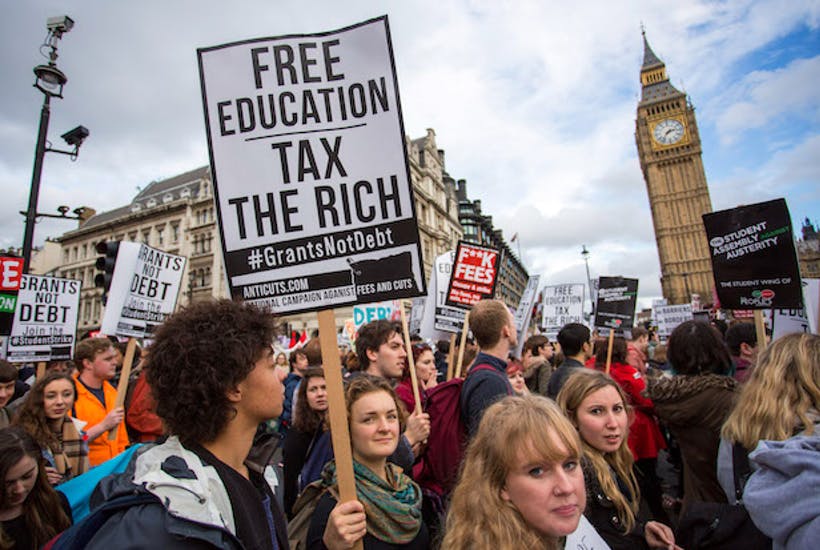One upshot of last week’s reshuffle is that Number 10 will get its review of higher education. But a lengthy look at tuition fees would be a mistake in both policy and political terms, I argue in the magazine this week.
Tuition fees have all but killed the Liberal Democrats. The breach of their manifesto pledge to abolish the charges, compounded by them voting for a fees increase, broke the party.
Even the Tories can’t compete, nor should they want to, with Labour’s pledge to abolish tuition fees. So any plan to reduce fees isn’t going to work politically. All it would do is help Labour by pushing the issue up the agenda.
Policy-wise, fees are the least worst option. They ensure that graduates make a reasonable contribution to the cost of their degree, that sufficient money goes to universities and, because the state doesn’t have to cap the number of students going, allows more students from disadvantaged backgrounds to go to university. If you doubt that, consider that an 18-year old from a deprived background in England is 50 per cent more likely to go to university than their Scots contemporary.
This isn’t to say that the current system is perfect. The 6.1 per cent interest rate being charged on the loans is far too steep and the replacement of maintenance grants with loans was a mistake; it means that those from the poorest backgrounds graduate with more debt than everyone else which is hardly fair. There is also a problem that universities have no incentive to try and ensure that their students can pay back their loans.
Tuition fees have raced up the political agenda because of the last election, and how successful Labour were in getting young people to turn out and vote for them. There’s no doubt that a Jeremy Corbyn-led Labour party getting forty per cent of the vote was a profound shock to the Tory psyche. But the right response to this is not for the Tories to offer voters a watered-down version of his prospectus. Number 10 needs to realise that you can’t beat Corbyn with Miliband.







Comments